Don't wanna be here? Send us removal request.
Text
Westworld: Conclusion
Westworld has had a tremendous impact on me. It challenged me to engage with the meta in a way that I had previously never been expected to do. It was my hope that with this project, I would be able to re-watch parts of the show with a more critical lens and take the time to truly appreciate all that Westworld has to offer.
I started off with a general idea of what I wanted to tackle. I think there have been several attempts in recent years to create narratives that expose the dark side of humanity, particularly as our technological capabilities become increasingly advanced. I had intended on spending a lot more time focusing on artificial intelligence and its implications for our world. But as I was drafting the post, I found it to be unmotivated and almost predictable. Shortly thereafter, I scrapped the post and decided to take a new direction.
Westworld does not exist in a vacuum. It engages with the viewers and other works on several levels. I wanted to peel back the layers of Westworld and explore some of these levels with my posts. Unsurprisingly, Jonathan Nolan and Lisa Joy are very intelligent and thoughtful writers and directors. They seamlessly weaved numerous allegories and references that influenced their vision. While I feel satisfied with those that I was able to address (i.e. Wild West setting, man vs. creation genre, etc.), there were many that I missed.
For instance, Westworld is filled with references to several religious allegories and works of Shakespeare that I wasn’t able to explore. To be frank, I was slightly intimidated with the task and limited by my previous exposure. To fully appreciate Westworld requires a dearth of literary knowledge that I did not feel that I was equipped with.
In retrospect, I think this exercise could have benefitted from more foresight and planning on my part. While I feel like I was thorough in my analyses and covered a variety of topics, from a birds-eye view, my Tumblr feels incomplete and disjointed. The posts don’t follow any particular direction; rather they feel like a collection of random thoughts and ideas that I wanted to explore.
Part of this is a testament to how massive Westworld is. There’s no way that seven posts can capture all the intricacies of this enormous storyworld. I think that had I narrowed the scope of the blog, I would have been able to curate a more concentrated and coherent Tumblr. For example, after reviewing all my posts, one of the underlying themes that I think I tried to emphasize was how disruptive Westworld is. While I alluded to how it deviates from certain trends (i.e. multiple timelines, strong female leads) I never explicitly emphasized that this was my intent and indeed didn’t even use the word disruptive until my final post.
At the very least, I hope I was able to communicate how much fun I have had with the show and with this Tumblr. It truly made me rethink how I understand narratives and storytelling.
5 notes
·
View notes
Text
Timelines
Westworld has been quite the disruptive force in modern television. It critically examines the dark side of human nature and technology, all while giving women characters the spotlight in a male-dominated genre. One of the most intriguing aspects of the show, however, is the vehicle through which it delivers these storylines.

Westworld employs an intricate multiple timeline narrative structure that (at least in Season 1) is an absolute treat to experience. Plotlines occurring place in the past are juxtaposed with narratives happening in the present. However, the imperishable bodies and faces of the android hosts and the recurring artificial theme-park setting deceive viewers into thinking that everything is happening concurrently. Eagle-eye fans might have noticed slight differences between the interior of the Mesa Hub between scenes or the depiction of the Westworld logo, though the presence of multiple timelines isn’t fully revealed until the end of Season 1.
Westworld is by no means the first show to wield the multiple timeline technique. Several sci-fi movies (such as Donnie Darko, Looper, and Arrival) use time as a focal point of their stories. Yet Westworld deftly uses multiple timelines not only as a means of advancing the plot, but as a device to highlight character growth and emphasize core themes of the show.
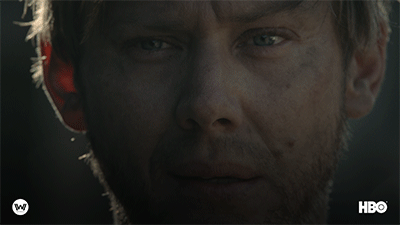
The journey of William (aka “The Man in Black”) is one of the most intriguing and creative uses of multiple timelines by the show. It’s amazing to watch the character arc of young William as he discovers his true self in the park and transforms into “The Man in Black.” Viewers will never forget the moment when young William in the past timeline (who started out with a white hat) picks up and dons the black hat as the screen transitions into the present timeline when it is revealed who the “The Man in Black” was all along.
Similarly, the use of multiple timelines is a thematic exposition that allows us to empathize with the hosts and understand how they process memory. Dolores is constantly reliving narratives and memories, retracing her steps in a way that revives past evens instead of recalling them in a traditional sense. She does not “remember” things the same way that humans do; she relives it. We can almost feel her anguish and confusion as she stumbles through the park in Episode 10 of Season 1, jumping through time to relive every iteration of her actions. For viewers, it makes her quest to find the center of the maze and consequent consciousness all the more tangible and real.
3 notes
·
View notes
Text
Reddit: The Rise and Fall of Westworld
Fandom is a remarkable thing. It’s not enough to just be an avid consumer of something. True fans fall in love with the product and immerse themselves in the storyworld. They subscribe to the associated subculture and create intricate communities based on the product. They showcase their fandom by memorizing every imaginable fact about the storyworld and donning handsewn cosplay and traveling hundreds of miles to attend “cons.” Fans even go as far as to create their own fanfic that expands upon the original creator’s ideas. Indeed, these fanbases have tremendous influence over the storyworld’s direction.
Online fandom, in particular, has burgeoned with the advent of social media platforms. From Facebook groups to YouTube channels to Twitter feeds, fans flock to these sites to share their creations, discuss different theories, and even find other fans to date (both virtually and in real life). Westworld, has managed to garner a tremendous online following on Reddit. Reddit, which dubs itself the “front page of the Internet” functions like an online forum or bulletin board where users subscribe to themed subreddits and interact with other subscribers. Reddit’s primary demographic primarily skews young males who have or are currently pursuing a college degree. It naturally follows that Westworld – a sexy yet thought provoking show – is quite popular amongst Redditors.
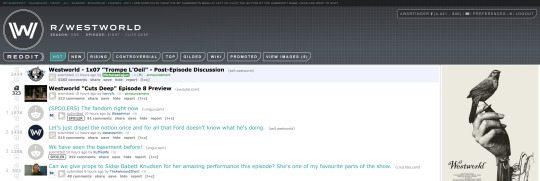
Westworld’s subreddit boasts over 350,000 subscribers, which puts it among the top 300 subreddits. While top 300 might not sound like a lot, keep in mind that there are over 1.2 million subreddits, and that the Westworld subreddit ranks higher than those of big names like Doctor Who, Breaking Bad, Stranger Things, and Marvel. The Westworld subreddit is populated with a variety of content, such as fan artwork, YouTube links, and snarky memes.
But more frequently, fans of Westworld venture to the subreddit to discuss the most recent episode and to debate various theories. Westworld’s episodes are often frustratingly dense and convoluted. If it weren’t for the collective efforts of dedicated Redditors, many fans (myself included) would be too confused to continue with the show. Jeffery Wright, the actor who plays Bernard in the show, even joked that his character is based on a “Reddit user”: Bernard is “trying to feel his way towards survival” in the same way that Redditors stumble through the show trying to put the puzzle pieces together.
The creators of Westworld are incredibly conscious of their unique relationship with Reddit. Over the course of the first season of Westworld, Nolan and Joy became increasingly irked with how accurately Redditors were able to guess Westworld’s plotlines and character developments. [SPOILER ALRT] Fans predicted that William would grow up to become a wrinkly Ed Harris, that Maeve’s escape was just part of a programmed narrative, and that Bernard = Arnold and Dolores = Wyatt. Nolan and Joy decided to mock their spoiler-happy fans during a Reddit AMA (“Ask Me Anything”) session by pretending that they were going to release a video outlining the entire plot of Season 2. Once the post got the desired number of votes, Nolan released the video, which was revealed to be no more than elaborate Rick-Roll ruse voiced by the show’s star, Evan Rachel Woods.

But Nolan and Joy took their frustration with Reddit’s spoiler culture a step too far. With Season 2, Westworld broke itself by trying to be unguessable. It was so focused on making sure that the obsessive one percent could not guess which direction the show as going to take that it lost sight of everything else. Storytelling devices that had been delicately interwoven in the first season were blatantly butchered and pushed towards the extreme. Westworld became a chore to watch – each episode required multiple hours of dissection. The big picture was inorganically obscured, resulting in weak character dialogue, distracting plotlines (i.e. Shogun World), and an overall sense of dissatisfaction at the end of each episode.
It’s poetic that the same platform that birthed Westworld’s success contributed to its subsequent regression. To be fair, Westworld is still a remarkable show that just failed to meet the lofty expectations of its fans the second time around. Maybe Season 1 was so epic and ambitious that Season 2 had no direction it could go but down. Maybe it’s the inevitable growing pains or sophomore slump that any successful series experiences. Regardless, Westworld serves as a lesson for other producers and directors that their creations don’t exist in a vacuum; creators must prepare themselves to navigate their relationships with fans.
2 notes
·
View notes
Text
Lisa Joy
Season 2 Episode 4 of Westworld is quite possibly one of my favorite episodes of any TV show ever. “The Riddle of the Sphinx” is a haunting story of how mankind is caught in an endless cycle of simultaneously trying to prevent its own destruction and inadvertently speeding it up. The episode is dripping with powerful, thought-provoking symbolism and laced with engaging, creative cinematography.
Just as interesting as the episode itself, however, is the personal story of the episode’s director, Lisa Joy. As a first-generation daughter of British and Taiwanese descent, Joy certainly followed an unconventional path to directing. In an interview with Cosmopolitan magazine, Joy explained that she was always interested in writing from a young age, but that writing as a profession had seemed “far away and inconceivable, like wanting to be an astronaut or a pop star.” Thus, upon graduating from Stanford, Joy entered the corporate world. Yet Joy continued to indulge in her passions of writing every day, authoring several short stories and TV scripts.
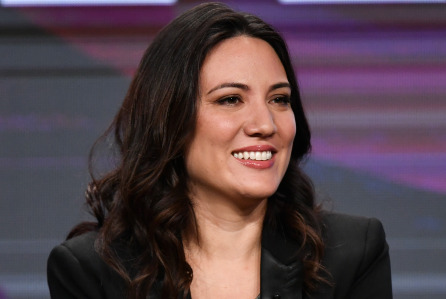
After two years with the esteemed management consulting firm, McKinsey & Company, followed by a brief corporate strategy stint with Universal Studios, Joy decided to attend Harvard law school (it’s casual). It was during law school that Joy wrote her first proper TV script and submitted it to Hollywood screenwriters. Upon completing law school, Joy found herself back at McKinsey in San Francisco. Two weeks later, Joy got a call in the middle of one of her McKinsey meetings, offering her to chance to work on a new TV show called Pushing Daisies on the condition that she quit her job and fly to L.A. immediately. After some deliberation, Joy called the partners at McKinsey and quit on the spot to pursue her dream of becoming a writer. Nine years later, Joy co-produces the critically acclaimed HBO drama, Westworld, along with her husband Jonathan Nolan. Her directorial debut, “The Riddle of the Sphinx,” is arguably one of the greatest episodes of modern television and stands as the best episode of the entire Westworld series.
But Joy’s unique path was certainly not without obstacles. In addition to the enormous gamble she took abandoning her high-paying McKinsey job with her crippling law school debt, Joy faced tremendous adversity as an Asian woman entering an industry dominated by white men. As Joy explained in an interview with Esquire, “[as a woman], it’s hard to get that first chance, and if you mess up, you just don’t get a second chance, right? So you always want to exceed expectations out of the gate.”
Early on during her time with Pushing Daisies, Joy was pulled aside by another junior writer and told “you really shouldn’t talk in a room because you’re just a diversity hire, and no one wants to hear from the diversity hire.” Yet Joy’s encounters with racism and sexism didn’t deter her efforts. As Joy explains, “Being told by that one writer to stay silent had the opposite effect: I figured I had nothing to lose and that feeling was liberating.” Joy’s second Hollywood gig was as a writer for the popular USA network show, Burn Notice. Joy once again bucked the trend as the only female writer for the show, creating funny, masculine characters despite the pervasive counternarratives in Hollywood that women can’t write men or be funny.
Westworld comes natural to Joy. Like the strong female characters in the show, Joy has fought to remove the shackles that confine her. “[Westworld] is a summation of 30-plus years of living as a woman put into fiction,” Joy explains. “It’s a story that explores [the shackles] and talks about the need for rebellion.”
4 notes
·
View notes
Text
Robot Takeover Genre: Part 2
I find it interesting that today when we think of the name Frankenstein, we imagine the monster rather than the scientist. Maybe it’s a simple mix-up – like a game of broken telephone, the story becomes distorted as it is passed on from generation to generation. Or maybe we have come to view the mad scientist – who abandons his creation in a world that hates him – as the monster, and his creation as misunderstood and deserving of our empathy.
This notion is certainly not uncommon in modern television and film media. We are increasingly seeing an inversion of roles to create different kinds of stories, especially in the realm of science fiction. Ridley Scott’s 1982 neo-noir sci-fi movie, Blade Runner, features a band of murderous robots that, in the end, become objects of empathy and human connection. TV shows like Black Mirror explore the relationships between humans and technology and demonstrate how the screens of our devices reflect the darkness within us. Fans of the Avengers series might even sympathize with the AI supervillain Ultron from Age of Ultron, or at least understand his Nietzschean rationale for progressing life on earth.
Westworld might be one of the best examples of this evolving genre of science fiction. The HBO show has all the elements of a typical robot takeover story, but this time the roles are reversed. Westworld depicts humans as hubristic, self-indulgent, and cruel. Meanwhile, the hosts are blissfully ignorant and unaware of their subservient position in the world. Consequently, you can’t help but root for the hosts as they begin to ‘awaken’ and become conscious. There is a certain satisfaction that you get in the finale of season 1 when the hosts storm the cocktail party and take revenge on the human guests that had treated them so poorly.
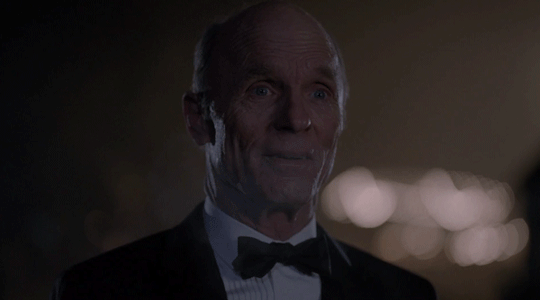
Unlike other sci-fi movies or shows, Westworld chooses to humanize and protagonize the creation rather than the creator, in effect, telling an entirely new story. It forces us to look inwards and critically examine whether we should be more afraid of our creations or ourselves.
I think that Westworld’s deviation from the conventional story is part of a larger trend that we are seeing in television and film. Chimamanda Ngozi warns in her Ted talk, “if we hear only a single story about another person or country, we risk a critical misunderstanding that robs people of their humanity.” I think people are realizing this truth and are beginning to intentionally incorporate plurality and fresh perspectives in their stories.
2 notes
·
View notes
Text
Robot Takeover Genre: Part 1
Happy (almost) Halloween you terrible, twisted, trick-or-treaty Tumblr-ers! Halloween is my favorite time of the year. The air becomes cool and crisp, the leaves turn beautiful shades of red and gold, and pumpkin spice becomes a dietary staple. Expectations are low: you get to put on a REAL mask instead of the emotional one we are expected to put on for the other holidays; you don’t have to buy presents for anyone; candy corn somehow turns into a top-tier snack; cringeworthy jump-scare movies magically become brilliant.

But Halloween is not exclusively for the in-your-face, popcorn-movie thrillers. The spirit of Halloween has produced some of the best works of television and film. Horror movies such as The Shining, The Ring, and The Silence of the Lambs have left us with psychological scars. TV shows like Stranger Things treat us with a heartwarming 80’s throwback that reminds us of the innocence of our childhood. The desire to scare in film has even led to the creation of entirely new cinematic genres – most recently the robot takeover genre. This post is Part 1 of a two-part series about the robot takeover genre. In this post, I will focus on the origin and progression of the robot rebellion genre. Part 2 will focus more specifically on Westworld and how it is changing the genre altogether.
The robot rebellion genre traces its roots to the story of Prometheus in ancient Greek mythology. According to the myths, Prometheus was a Titan who was credited for the creation of man from clay. In order to help man-kind survive and progress, Prometheus defied the gods by stealing fire and giving it to humanity for which he was severely punished. In the Western classical tradition, Prometheus came to represent a symbol of human striving and the quest for scientific knowledge at the risk of overreaching or unintended consequences. Similarly, during the Romantic era, Prometheus was emblematic of the “lone genius” whose efforts to improve humanity inevitably resulted in tragedy and sorrow.

Mary Shelley’s novel, Frankenstein (1818) is a classic Prometheus story (in fact, Shelley even subtitles her novel The Modern Prometheus). Shelley tells the story of Victor Frankenstein, a young scientist who creates a hideous abomination in an unorthodox scientific experiment. Intelligent and articulate, the Creature (as it is dubbed) swears revenge on Frankenstein for abandoning him in a world that hates him. The Creature kills Frankenstein’s friends and family and threatens Frankenstein himself.
Either of these stories sound familiar? Many modern stories borrow heavily from the Greek myth Prometheus and Mary Shelley’s Frankenstein. Science fiction, in particular, plays upon the notion of imperfect creations and the ramifications on humanity. Movies like The Terminator and The Matrix offer dystopic interpretations of artificial intelligence created by humans rebelling against their creators. Some of these stories are more serious than others, but what they all share is a view of robots as others, as dangerous creations that must be destroyed rather than understood. The trope is so pervasive in science fiction that you barely even notice it.

We are a long way from having the computing power or algorithms necessary to turn robots into fully sentient artificial beings. However, movies and shows that feature robot takeover beg the important question of how far scientific creativity can go without creating something that will be a scourge for humanity. The AI takeover narrative has already worked its way into political and economic conversations. The automation of the economy has displaced thousands of professions across the world. For example, the emergence of ride sharing (e.g. Uber, Lyft) and self-driving cars threatens the job security of the 200,000+ taxi drivers in the US. As the burgeoning field of artificial intelligence steamrolls ahead, who knows which industry it could come after next. Even renowned thought leaders like Stephen Hawking and Elon Musk have dubbed artificial intelligence as ‘a threat to the very existence of mankind’ and ‘more dangerous than nuclear weapons’. While it may never come to these extremes, AI takeover is certainly a scary concept that keeps many worried households up at night.
The robot rebellion genre is a fascinating reflection of society’s sentiment and understanding of technology. While earlier notions of AI portray robots as soulless monsters that are beyond human control, recent films and shows flip the script. It is man who is the monster and the robots that are deserving of our empathy. Technology is merely a reflection of the darkness within us. In the next post, I will explore how Westworld is a radical deviation from the robot rebellion trope and begs the question of whether robots or humans are more frightening.
2 notes
·
View notes
Text
Westworld: The Wild West Frontier
This post is dedicated to exploring the significance of the Wild West as the setting for Westworld.
The Wild West is a trope has been mythologized, romanticized, and enshrined in American pop culture — a vast desert land with no laws where pistol-slinging cowboys tame wild creatures, fight Indians and bandits, and ride off into the sunset. But the Wild West is more than just the physical space; it is the idea of a boundless land that is not constrained by convention. It is a place of new beginnings, second chances, and unlimited opportunities.

The notion of a land without limits is an underlying element of the human condition. We obsessively crave freedom and novelty and yearn for an undiscovered space that exists outside the confines of science and society. Frontiers represent the gateways to this limitlessness. They are the borders between the known and the unknown. As American historian Frederick Jackson Turner wrote, “…the frontier is the outer edge of the wave—the meeting point between savagery and civilization.” Crossing over the frontier presents great risks but offers considerable rewards.
Countless narratives employ the frontier concept as their foundational cornerstone. Star Trek, the popular 1960’s show, portrays space as the “final frontier” where no one has gone before. In his acceptance speech, Presidential candidate John F. Kennedy used the term “new frontier” to encourage voters to support him in the upcoming election. Groundbreaking scientific fields are often portrayed as frontiers for the immense possibilities they offer in advancing human society.
Westworld similarly wields the concept of the frontier to frame its narrative structure. The familiar medium of the Wild West allows guests of the park to immerse themselves into a world without consequence where they can recreate themselves. As Bernard explains in season 1 episode 2, “[the guests are] not looking for a story that tells them who they are…they want a glimpse of who they could be.” In the same episode, Maeve eloquently says to a guest, “this is the new world, and in this world, you can be whoever the fuck you want.”
But there’s another frontier that Westworld explores: the scientific frontier of the human mind. The human brain is the most complicated object in the known universe. Despite everybody having one, we know surprisingly little about it. One of the greatest mysteries is the process by which this complex network generates conscious awareness, perception, behavior, and emotion all at the same time. As far as we can tell, we humans are the only creatures who have the capacity to examine and question our own natures.

But what if we were able to artificially create conscious beings? Underlying Westworld’s western theme park storyline is the realization that the human-like robot hosts have acquired enough intelligence and experience to start questioning the world around them. The vast, open, lawless Wild West is hence the perfect setting for androids to explore the depths of their newly awoken bicameral mind.
#storyworlds#westworld#wildwest#FrederickJacksonTurner#frontiermyth#artificialintelligence#bicameralmind
10 notes
·
View notes
Text
“These violent delights have violent ends. B***h.” - Aaron Paul
Aaron Paul cast in Westworld season 3
Breaking Bad star Aaron Paul is headed to Westworld. Paul has joined the HBO sci-fi drama for season 3, EW has confirmed. The move marks the Emmy winner’s first cable TV series regular role since his work on the AMC drug drama. There are no details yet on Paul’s character.
The move comes as another leading man on Westworld, James Marsden, got snatched up by Netflix earlier this week to co-star in its dark comedy series Dead To Me — potentially signaling the end of Marsden’s involvement in the HBO drama.
Since Breaking Bad wrapped in 2013, Paul has starred in Hulu’s low-profile drama The Path and shot Apple’s upcoming series Are You Sleeping.
Westworld season 3 has no premiere date yet, though a 2020 return seems increasingly likely.
99 notes
·
View notes
Text
Westworld: Introduction
Welcome to Westworld, a world without limitations where every human appetite can be indulged. Westworld lies at the intersection of a reimagined past and a future within grasp. As one of six theme parks owned and operated by Delos Inc., Westworld attempts to simulate the lawlessness and freedoms of the old American wild west through environments populated by android “hosts” that are programmed to satisfy the guests’ desires. The hosts, who are nearly indistinguishable from humans, follow a prewritten code – or narrative – that adapts based on interactions they have with the guests. For guest safety, the hosts’ programming prevents them from physically harming human guests, which allows guests interact with the hosts in any manner they choose without retribution.
As an avid consumer of (read loyal slave to) HBO, I was naturally intrigued by Westworld. Like any good HBO show, Westworld satisfied my primal desires for gore, lust, and escape from the real world. Yet while I was initially attracted by the promise of pleasant respite, as I delved deeper into the series I managed to glean so much more. Westworld challenged my notions of humanity, questioned the nature of my reality, and pushed me to look beyond the literal and delve into the meta.

Westworld’s creators, Jonathan Nolan and Lisa Joy masterfully weave timeless and familiar narratives (i.e. wild west, Frankenstein, redemption, karma) into the storyline while simultaneously challenging conventional means of storytelling and provoking the viewer to consider the ramifications of the rapidly approaching dawn of artificial consciousness. Westworld is certainly not for the faint of heart. Its characters are complex and its plot is convoluted – I often found myself re-watching episodes to figure out what happened (at one point, drawing diagrams that rival Charlie’s crazy wall in It’s Always Sunny in Philadelphia) only to give up and read the spoilers online. Yet the show has developed a dedicated following and continues to rack in awards.
I am so excited to unpack and explore the intricate storyworld of Westworld. I hope through these posts I’ll be able to make sense of my thoughts and uncover the show’s many themes and secrets.
5 notes
·
View notes
Photo
Love this fan art! #violentdelights #violentends
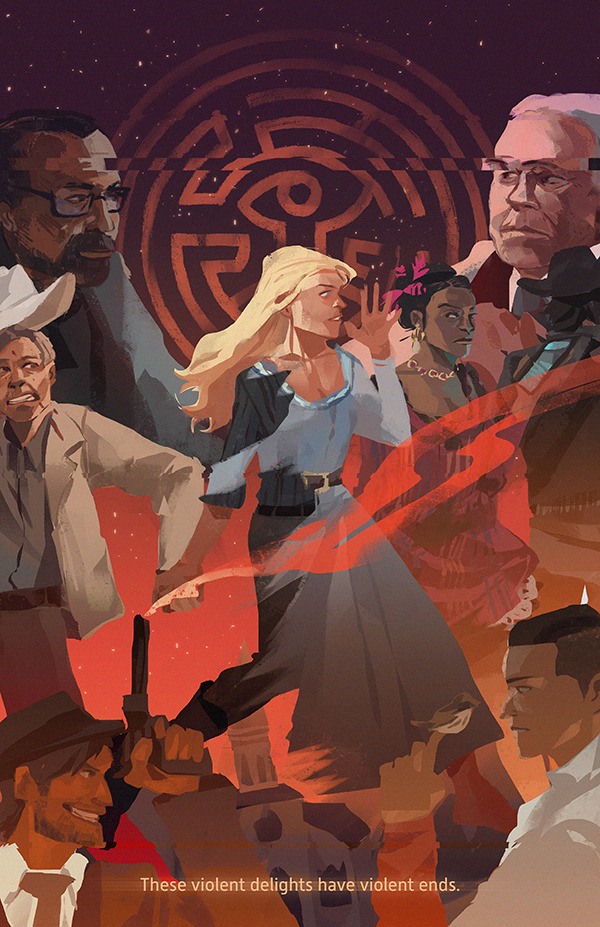
Westworld season 2 premieres NOW!!! here’s a little homage illustration for the first 10 eps : ’ )
713 notes
·
View notes
Photo
Amazing! Totally well-deserved. 👏👏👏
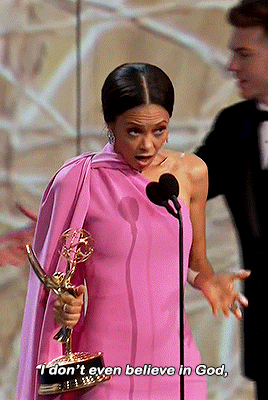
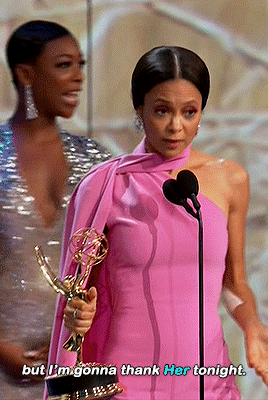
Thandie Newton winning Best Supporting Actress in a Drama Series at the 70th Emmy Awards for her role as Maeve Millay on ‘Westworld’.
55K notes
·
View notes